March 2023
In this edition:
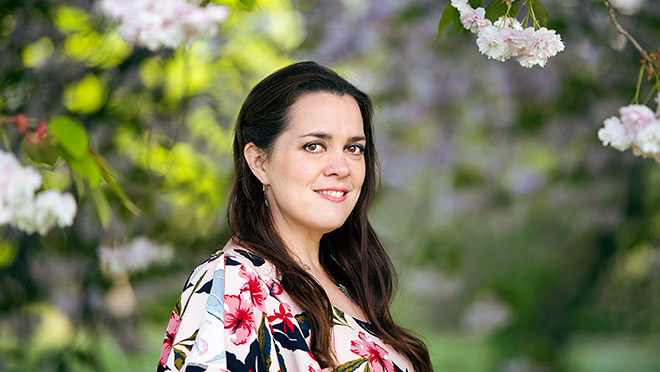
Meet the City of Abbotsford's new community energy manager, Erin Desautels
Join us in welcoming Erin Desautels, the City of Abbotsford's new Senior Manager, Energy & Climate Action and one of the newest members of our network of community energy managers.
Having grown up in the Fraser Valley, Erin is excited to help bring a low-carbon climate resilience lens to Abbotsford in the wake of 2021's devastating floods. She told us that "it's absolutely a community that is primed to really take bold moves in terms of climate action, including mitigation, adaptation and resilience. And there's already a lot of really amazing work that's going towards that."
Erin told us that in Abbotsford, a relatively low-density agricultural community, "there's a real connection to land, and stewardship of land is such a big part of foundational climate interest." As the largest municipality in B.C. by land area, with a growing population, Abbotsford brings some unique challenges in terms of land use and transportation. Erin adds that "I'm really excited to just come into the portfolio and see all of the great work that's been done like supporting the green building policy and the EV bylaw amendments that were put in for multi-unit buildings."
Prior to joining the City of Abbotsford, Erin held sustainability positions for the City of Coquitlam and City of Surrey. She brings a deep passion for community climate action and supporting women's leadership to her work. For Erin, a key part of the community energy manager role is "the opportunity to have impact at a level that you can actually see the fruit of your labour in the community."
As a new member of our community energy manager network, Erin looks forward to getting involved in opportunities such as our local government peer networks and ideation workshops. She adds that "I'm always one that's looking to learn and I think this is a great group of professionals to do that from." In her spare time, Erin is passionate about travel, wine tasting, and outdoor activities like hiking and snowshoeing.
We provide funding for local governments to hire community energy managers and advance their clean energy initiatives.
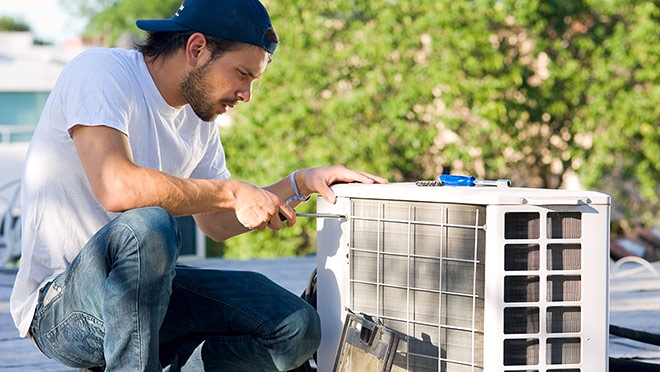
Update on the community energy projects we're providing funding for this year
We recently confirmed the recipients of this year's funding to implement community energy projects. This opportunity allows members of the sustainable communities network to submit applications for high-impact projects that support the market and societal transition towards efficient, low-carbon communities. The focus is on implementation: making things happen and supporting real market transformation at the community level.
This year, we're excited to be supporting twenty projects. A few themes emerged in this year's cohort:
Indigenous-centred research, training and engagement
Several projects this year focus on scaling up capacity for clean energy in Indigenous communities. These include:
- Musqueam First Nation's community engagement and workshops.
- Fraser Basin Council's work on building Indigenous capacity for energy efficient housing.
- Piloting low-carbon, climate resilient new construction MURB strategies with First Nation partners.
- The Construction Foundation of BC's implementation of the new Indigenous led development of the First Peoples Homes Standard.
Helping residents navigate energy transitions
Vancouver Island's Capital Regional District communities are leading several projects aimed at residents, such as:
- A study to determine the feasibility of delivering no-cost heat pump installations for income-qualified homes.
- a Neighbourhood Energy Navigator project targeting neighbourhoods that can benefit from home energy upgrades.
Meanwhile, the City of Kamloops has partnered with the Youth Climate Corps to deliver a community outreach program focused on improving home energy efficiency, reducing greenhouse gas emissions, and increasing climate resiliency. It also provides education and work experience opportunities for youth.
Other key project themes
- Capacity building for trades in rural regions.
- Utility data collection for high-performance homes.
- Step Code implementation.
- Engagement for the hotel sector.
- Building cost analysis.
- Education initiatives, including microcredentials and the development of training materials for high-performance buildings.
Robyn Webb, our local government conservation and climate action program manager, adds that "the sheer number of applications we received this year is exciting. We really noticed that applicants were thinking not only about how the projects would benefit their own community, but also how the projects can be shared with others and scaled up. The high number of partnership applications was heartening and really shows how good our network is at collaboration."
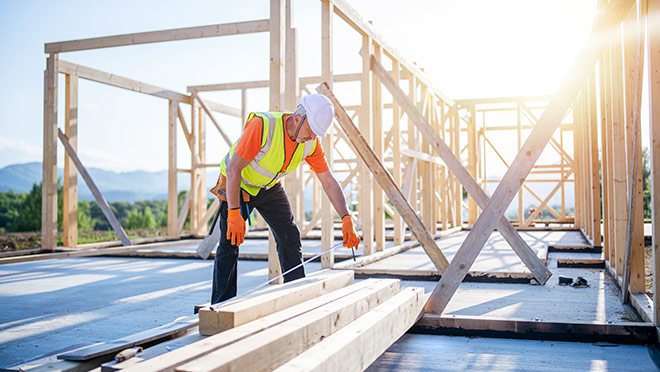
Carbon Pollution Standard: update on new provincial legislation
B.C.'s Building and Safety Standards Branch recently announced new changes to the BC Building Code that will enable 20% better efficiency and provide an opt-in Zero Carbon Step Code (formerly known as the Carbon Pollution Standard). Key highlights from the Building Officials' Association of BC include:
- The new code changes go into effect May 1, 2023. This means that after May 1, most new construction in B.C. must be 20% more energy efficient than base 2018 BC Building Code.
- The opt-in Zero Carbon Step Code will also be available for local governments to reference starting May 1, 2023.
- Read the amendment to the Building Act General Regulation online.
- Read a PDF convenience copy of the BC Building Code changes (for information only).
- The performance approach for Step 3 in Part 9 construction remains the default option. Local governments wishing to enable a prescriptive energy efficiency approach for Step 3 in Part 9 construction must pass a bylaw to enable that approach. This responds to feedback from rural or remote communities who wish to maintain a prescriptive-based option, while also meeting requests from other local governments wishing to retain the performance-based approach.
- Backup heat from wood stoves and decorative gas fireplaces will be excluded from GHG modelling in Part 9 buildings. This responds to feedback from communities that experience frequent power outages.
Stay tuned to this newsletter for updates on how we'll work with local governments to support the new building standards and Zero Carbon Step Code.
The Building and Safety Standards Branch will release more information in the coming weeks to support a smooth rollout of the change. Email building.safety@gov.bc.ca if you have questions.
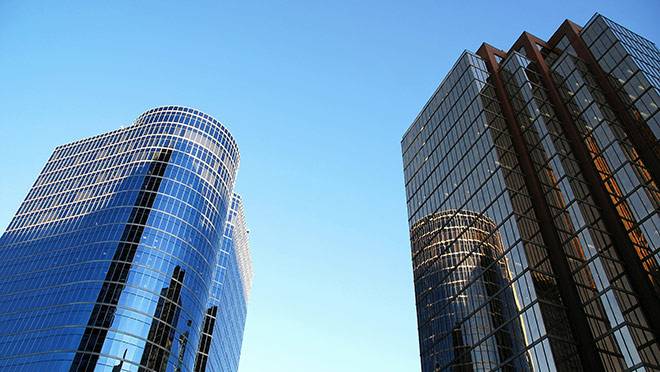
Building Benchmark BC releases Year 3 annual report
Building Benchmark BC, Canada's largest voluntary building energy and carbon reporting and disclosure program, recently released its Year Three Annual Report. The report provides insights on how participating properties across the province stack up against Canada's first-ever Carbon Pollution Regulation for buildings, passed by the City of Vancouver council in May 2022.
The report shows that roughly 25% of office buildings in the dataset would need to take action to reduce their carbon emissions to meet the regulations requirements, which take effect for Vancouver in 2026 and may be replicated in other jurisdictions around the province.
A central goal of Building Benchmark BC is to help property owners to prepare for these types of policies by streamlining the energy reporting process and giving owners critical insights on the steps they can take to achieve energy and carbon savings. We're proud to provide program support for Building Benchmark BC.
This year's report takes on an innovative format – it's now an interactive report, where readers are empowered to visualize and slice-and-dice the data as they see fit. According to Daniel Eden, P. Eng., Building Benchmark BC program manager, "we're excited to usher in a new type of report. In these times of constant distraction, it's really hard to find the brainspace and time to read a 30-page static report. That's why we wanted to break-the-mold and experiment with an interactive report that allows the reader to interrogate the data and bring it to life".
Building Benchmark BC is now welcoming new property owners and managers – as well as additional jurisdictions – to join for Year 4. Visit Building Benchmark BC for more details.
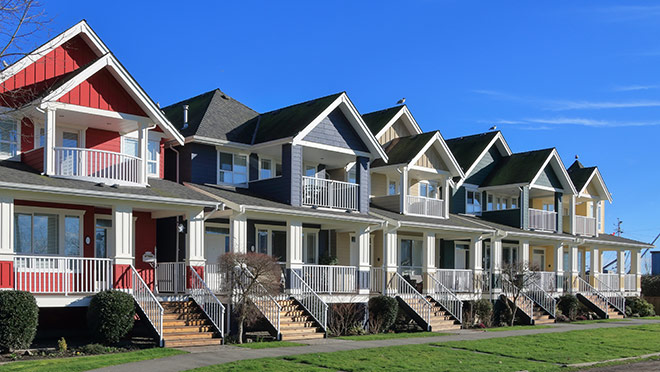
Quick links from around our community
We're sharing some quick, timely links from the energy efficiency and low-carbon electrification field that you might find useful.
- Wondering if switching to a heat pump will save you money? Our heat pump cost calculator provides homeowners with a quick estimate of heat pump costs compared to other heating sources.
- Check out the BC Green Building Calendar for upcoming events in B.C. related to high-performance, energy-efficient building design. It's managed by ZEBx, through a partnership with Canada Green Building Council and other industry leaders. You can also submit events from your organization.
- Looking for ways to help residents in your community switch from heating with oil to electric heat pumps? Eligible homeowners can now pre-register through the Canada Greener Homes Initiative to apply for up to $5,000 in additional federal support.
- What can policymakers in B.C. learn from Denmark's building decarbonization, energy efficiency, and climate adaptation practices? The Vancouver Economic Commission recently led a delegation local of green building leaders in Copenhagen to learn about Danish green building innovations and build new market connections.